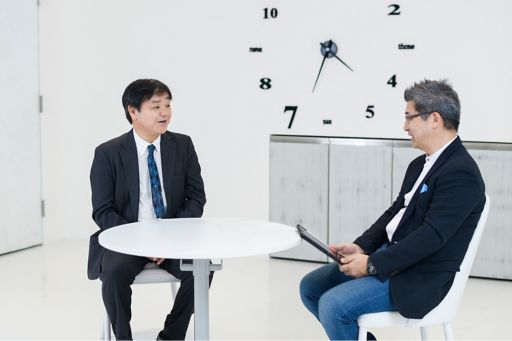In the world of business, the importance of SDGs and ESG has recently been advocated, with the word “sustainability” attracting significant attention. Meanwhile, as we all know, the word “digital transformation (DX)” is becoming a buzzword and the importance of DX at companies is increasing. As just described, we often hear the view that “sustainability” and “DX” will become the main strategic themes of companies in the post-COVID-19 world. However, there may not be so many people who realize that these two concepts are deeply interconnected.
Against this backdrop, Mitsubishi Chemical Holdings (hereafter referred to as Mitsubishi Chemical HD) is focusing on “ambidextrous DX”, which concurrently promotes DX for their current business issues and DX in anticipation of the future. It is also defining their management direction by focusing on “sustainability,” which includes seeking their ideal future 30 years from now while imagining society 50 years from now.
In this article, we will introduce a discussion between Masayuki Chatani from KPMG Ignition Tokyo and Naohiko Uramoto, Chief Digital Officer at Mitsubishi Chemical HD, who is playing a central role in promoting DX across the entire group. (Vol. 3)
Data Scientists Are Increasing in Our Company
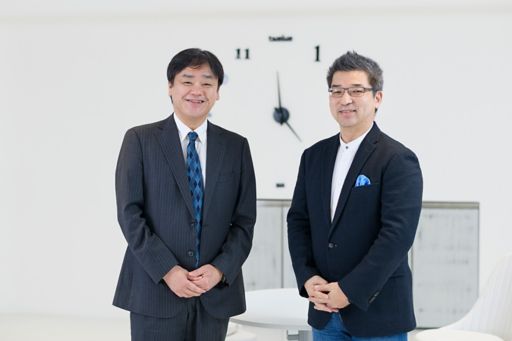
(Naohiko Uramoto, Executive Officer and Chief Digital Officer, Mitsubishi Chemical Holdings Corporation (left) and Masayuki Chatani, Representative Director & CEO of KPMG Ignition Tokyo and CDO of KPMG Japan) *Professional affiliation and official position in the article are at the time of publication.
Chatani: The promotion of LCA that you just mentioned will require data analysis and I think demand for data scientists will increase accordingly. Do you already have such teams set up in the company?
Uramoto: Yes. When we started promoting DX three years ago, there were only data scientists who solve issues by using statistical machine learning in our team but now that three years have passed, personnel who can analyze data are increasing in various organizations
Chatani: Are there cases where employees who were involved in other tasks in the company aimed to become data scientists and actually achieved it? If so, are you providing them with training and OJT?
Uramoto: Yes, we have a personnel system that “reallocates personnel through a job posting system” and there are several people who have joined our team through this system. They weren’t data scientists from the beginning but many of them were carrying out various forms of data analysis in their previous jobs and felt that “it was really interesting.” As user companies have been starting to possess a lot of data recently, it is becoming an exciting jobsite for data scientists. In addition, we have created a network of data scientists or employees who are interested in data analysis in various regions, held subcommittees and in-house competitions, and launched a DX human resources education program in 2019 to raise the level of in-house human resources.
If Disruption Occurs in Business Going Forward, What Will It Be?
Chatani: If discontinuous evolution occurs at Mitsubishi Chemical HD next, what do you think it will be?
Uramoto: In the business model area, I think that it will be how we can transform from selling tangible goods to intangible goods. In the area of technology, we have started research utilizing quantum computers at our laboratories so something might occur from there. Though it has been said that quantum computing “will not be of use right away,” this is the same as for “materials informatics” and I think that a revolutionary change may occur in the R&D field if it is actually put to practical use. We sometimes support research carried out jointly by Mitsubishi Chemical researchers and researchers at universities and IT companies and their projects are very interesting.
Chatani: We are also extremely interested in quantum computing. We are collaborating with a community called “Machine Learning Tokyo,” which aims to democratize machine learning and artificial intelligence, and are providing opportunities to exchange opinions.
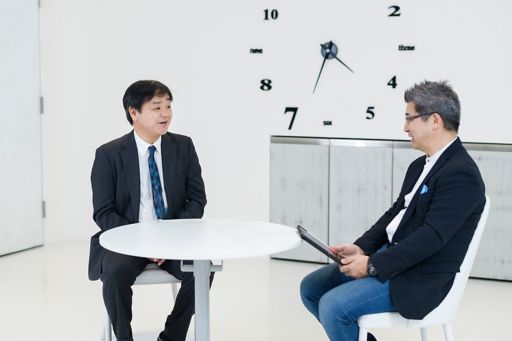
In our case, we think that quantum computing can be used to detect, for instance, abnormal values, limits and circular transactions from transaction data. We think that both chemical formulas and transactions are, in some ways, networks.
Uramoto: In the case of quantum annealing, it may be possible to resolve problems at overwhelming speed by using current semiconductor technology if we can properly define problems. I also think that installing AI and graphic algorithms on quantum gate computers will also be a research theme.
Chatani: Also, regarding post-quantum cryptography, its standard should be determined soon. In the financial sector, in particular, the entire business foundation will be damaged if the codes are broken. So, we are paying close attention to its future movements.
Uramoto: There are also issues such as how many quantum bits are necessary and what can be done with quantum bits that can actually be obtained. I also think that discussions on security issues concerning not just quantum but DX will also be important.
Society in 50 Years Foreseen by Mitsubishi Chemical HD
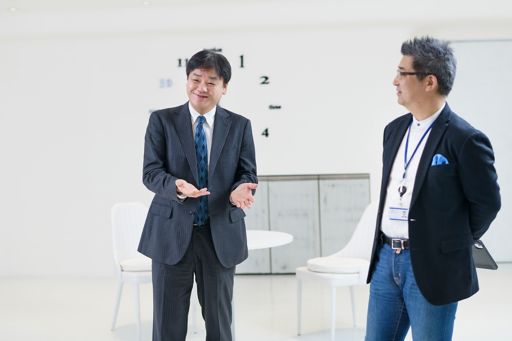
Chatani: You mentioned that Mitsubishi Chemical HD is advocating “KAITEKI Management.” “KAITEKI” means that “the comfort of people, society and the earth will last forever.” I understand that this is Mitsubishi Chemical HD’s original concept, which proposes not just to resolve environmental and social issues but also to focus on the sustainable development of society and the earth. When we think of DX in this context, how do you think it will be in 10 years or 20 years from now?
Uramoto: A new vision called “KV30” was presented in February 2020. “KV30” is short for “KAITEKI Vision 30.” It sets an ideal vision of society and our company in 2050, and by back-casting from there, describes what we must do and what we want to be in 2030. We will be formulating a medium-term management plan with this in mind.
The society we should aim for based on “KV30” is an “optimized recycling-oriented society” and one characterized by “sustainable well-being” and we will aspire “to become a company that provides continuous solutions to social issues” based on this. The solution areas that should be focused on for the realization of KV30 have been presented, and we are currently discussing how digital technology can contribute to that area.
These discussions include several topics such as sustainability, reforms to working style and advanced technologies but it is the understanding of the team members that “the promotion of DX that focuses on these areas will become extremely important.”
Chatani: How are you carrying out these discussions about the future?
Uramoto: We are trying to carry out discussions in a “visible area” within the company as much as possible. For instance, there are internal social media and chat rooms and we have established the premise to intentionally hold discussions including undefined topics using these tools. We are also using research companies to scan and reflect information. However, due to the drastic changes brought about by COVID-19, there are difficulties, as it is very hard to foresee society even in 2030. The role of DX in this situation, I think, is to build a society that is tolerant to changes.
Chatani: You mean to build core strength so that it can endure anything.
Uramoto: I think that agility and adaptability to changes are required. In fact, I don’t think anyone had predicted the current situation.
Chatani: By the way, I presume that COVID-19 had some impacts on Mitsubishi Chemical HD.
Uramoto: Well, as far as DX goes, it can be said that “the COVID-19 crisis is a key player for promoting DX” as we can see from the changes in teleworking and online meetings.
Of course, the problems caused by the COVID-19 crisis are serious but IT literacy in the company has been enhanced enormously. Although those involved in plant operations have to go to the worksite, most employees working at the headquarters are still working from home. Also, everyone is realizing that work can progress even under such circumstances. What is now important is “how not to return to the way it used to be.”
I am very fond of the phrase “Build Back Better,” which is often used in city planning. It means “to make it better when restoring something” but I think there are certain similarities in the current situation. As there are many things that can be done using digital platforms, this can be regarded as a tremendous opportunity.
Meanwhile, because we are in this situation, I have come to think that “wisdom is significant and it is important to shift from knowledge to wisdom,” as Mr. Chatani explained in the Forbes Japan article.
Chatani: Absolutely. Though there are cases where AI has exceeded human wisdom in specific fields, such as the AI shogi player, I think that wisdom is still very important.
Uramoto: Data is extremely important now, but I think data refers to wisdom and, in the case of a chemical company, knowhow regarding proportion recipes and plant operations, which are elements that differentiate us from other companies.
Chatani: In fact, I think such wisdom is hidden and undiscovered in any company. For instance, when the Walkman was being developed at Sony, the theme was “to make it as thin as possible.” There is an anecdote that when the test model was completed and brought to the superior, he immersed the machine in a bucket of water and when bubbles came out from the machine, he rejected it saying, “it can be improved because there is air coming out.”
As it is a machine, it is not necessarily good to make it completely airtight with no air leakage. However, this method of “confirming whether there is still space by checking for air bubbles” is a clever way to quickly convince people without any arguments. I think that to show what cannot be verbalized is a wisdom and that this kind of wisdom can be found in any company.
Uramoto: As such “god-like people in a company” are aging, I feel that it is also important to consider “how to maintain wisdom that exists in the company” and that digital technology can be utilized as a means to maintain it.
It is important to collect an enormous amount of data but I think the conversion from data to wisdom and accumulating them differentiates a company from others.
Profile of Interviewee
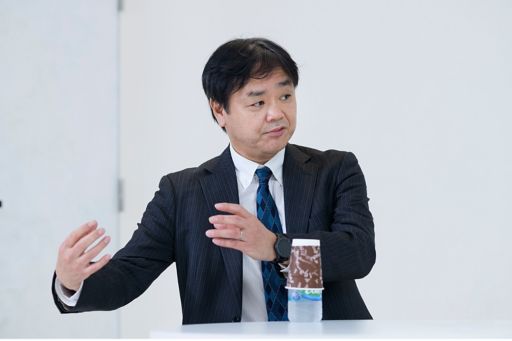
Naohiko Uramoto
Executive Officer and Chief Digital Officer
Mitsubishi Chemical Holdings Corporation
Naohiko Uramoto joined IBM Japan in 1990 and was engaged in the research and development of natural language processing, web technology, security and cloud computing, etc., at its Tokyo Research Laboratory. He served as CTO of Bluemix Garage Tokyo in 2016 and joined Mitsubishi Chemical Holdings in 2017. He is promoting digital transformation utilizing AI and IoT technology. In April 2020, he became Chief Digital Officer. In addition, he concurrently served as President of the Japanese Society for Artificial Intelligence from 2018 to June 2020 and now as a visiting professor at Kyushu University. He has been a fellow of the Information Processing Society of Japan since 2020.
Follow us on KPMG Ignition Tokyo LinkedIn for the latest news.
Connect with us
- Find office locations kpmg.findOfficeLocations
- kpmg.emailUs
- Social media @ KPMG kpmg.socialMedia



